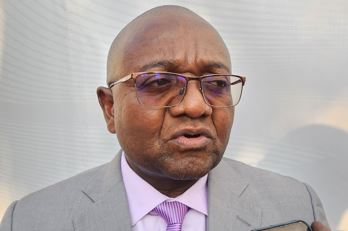The African Development Bank (AfDB) on Monday announced that it will unveil funds to finance the importation of electricity from neighboring Uganda to South Sudan.
Themba Bhebhe, AfDB South Sudan Country Manager, told reporters in Juba that the project will be jointly funded by the continual bank and the European Union (EU). He revealed that the project is already in advanced stages and could roll out in the second quarter of this year.
“Yes, the project was approved in the first week of December 2024 by our board, and it is almost about USD 200 million. We have to announce that we are financing that project with the EU, who are giving us about USD 50 million, and we are putting in the balance,” he disclosed. “So, at this stage, we should be signing a financing agreement with the government and the EU and also launching the project formally.”
He said the project is going to be implemented directly through the electricity utility company and subcontracting of international companies that will implement the project.
“This is about a five-year project, assuming that there is peace along that corridor, and we do not anticipate any problem that can disturb the implementation of that project,” he stated. “So, yes, I can confirm that the bank has mobilized enough resources in partnership with the EU to implement that project.”
According to Bhebhe, once the project is fully implemented, the cost of electricity in South Sudan will significantly reduce from the current 42 cents of a U.S. dollar per kilowatt hour to 12 cents per kilowatt hour.
“The challenge that South Sudan is facing now in terms of electricity is three-dimensional, in terms of supply, enough generation, the distribution, and the cost. So, I think the answer is in the cost. So, the cost, like I was saying, from the studies that we have done, is that it costs about 42 cents per kilowatt hour, average tariff, that the South Sudanese pay,” he explained. “Obviously, it depends on whether you are domestic or industrial, but that is the average. So, if you look at the region now, it costs about an average, from what I understand,d of about 10 to 12 cents per kilowatt hour, which means the South Sudanese pay four times higher than their counterpart in the region.”
“So what that project is going to do is to significantly reduce tariffs to about an average of about 11 or 12 cents per kilowatt hour,” Bhebhe concluded.




